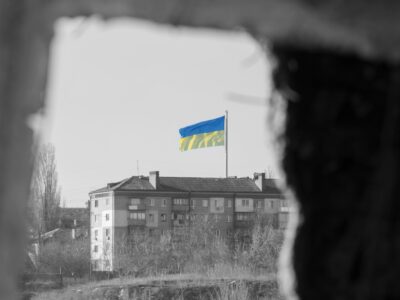Ahead of Biden-Putin Meeting, New Paper Offers Political Solution In Ukraine Crisis
FOR IMMEDIATE RELEASE
CONTACT: Jessica Rosenblum, Director of Communications, Quincy Institute for Responsible Statecraft, 202.800.4662/ [email protected]
WASHINGTON, DC — As President Biden prepares for his highly-anticipated first summit with Russian President Vladimir Putin, a new paper from the Quincy Institute offers a roadmap toward resolving the most pressing dispute between the two nations: the conflict in Ukraine.
The paper, written by QI Senior Research Fellow on Russia and Europe Anatol Lieven, outlines a political resolution to the Ukraine-Russia territorial disputes over Crimea and the Donbas. Drawing from the internationally-supported Minsk II agreement, Lieven lays out a solution to these disputes based on regional autonomy, grounded in the principles of both self-determination and national sovereignty.
“The United States and Russia will never fully agree on Russia’s disputes with Ukraine,” Lieven said. “But the Minsk II agreement offers a strong starting point for compromise. An autonomous Donbas, remaining within a pluralist, federal Republic of Ukraine, is the best resolution to this conflict that any side can reasonably hope for.”
Lieven’s paper, entitled, “Ending the Threat of War in Ukraine: A Negotiated Solution to the Donbas Conflict and the Crimean Dispute,” offers concrete steps toward this outcome. The question of autonomy for the Donbas would first be submitted to the region’s people in an internationally-monitored referendum, and then approved by Ukraine’s national parliament in a constitutional amendment — and Lieven offers clear alternatives should this be rejected at either stage.
Recognizing the reality that Russia, which has controlled Crimea since 2014, will not give it up short of war, Lieven proposes to offer Crimea’s residents a second referendum on the peninsula’s status, this time subject to international monitoring. Should this result in a vote to join Russia, the U.S. and the West can recognize Russia’s sovereignty over Crimea in return for Russia’s long-withheld acceptance of the independence of Kosovo.
This resolution offers the greatest chance of averting further conflict between the U.S. and Russia, and between Russia and Ukraine. Moreover, as the frozen conflict in Ukraine is the primary driver of hostility between the two powers, its conclusion could open the door to better U.S.-Russia relations across a number of vital areas.
“If reasonably cooperative relations between the West and Russia are to be restored, Russian behavior improved, and future crises and conflicts avoided, this process must begin with a settlement in Ukraine,” Lieven writes.
###

